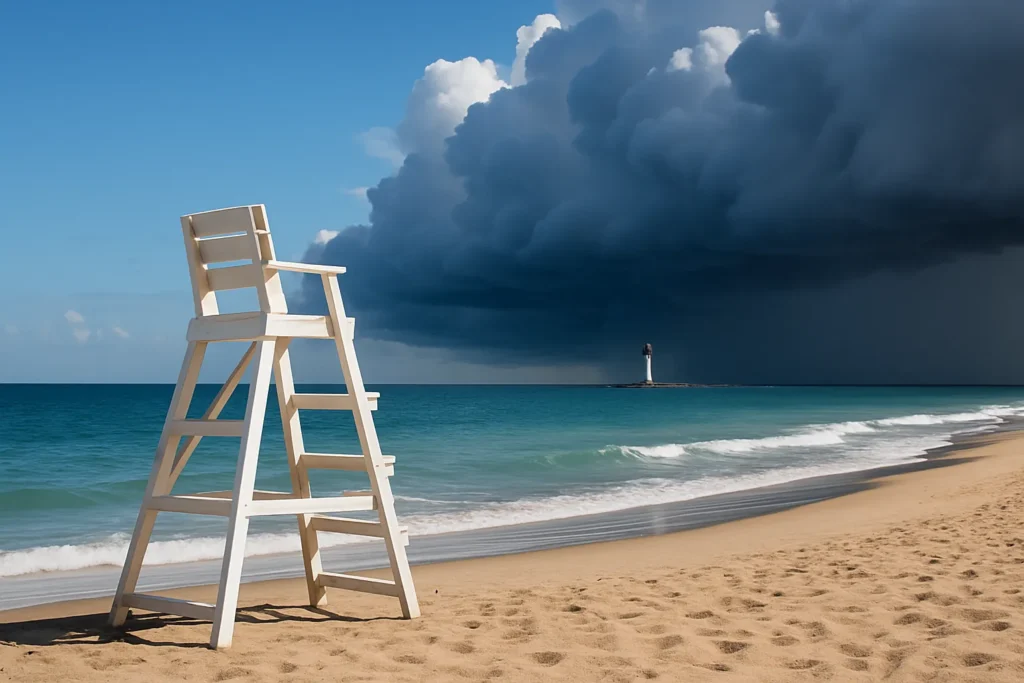The Sudden Ouster: FEMA in the Political Crosshairs
With hurricane season lurking just weeks away, the Trump administration has ignited a political firestorm all its own—by firing Cameron Hamilton, the acting head of the Federal Emergency Management Agency, a mere day after he told Congress that eliminating FEMA would be against the public interest. Hamilton’s swift removal came not through routine bureaucratic reshuffling, but as a clear message that dissent is no longer tolerated at the highest levels of disaster management.
Hamilton, who never qualified for permanent appointment due to his lack of required emergency management experience (as outlined in federal law), put his job at risk when he reaffirmed to lawmakers the agency’s critical role coordinating federal disaster relief. According to multiple reports confirmed by the Department of Homeland Security, Hamilton was escorted out of FEMA headquarters immediately after his dismissal. His official biography was scrubbed from the agency’s website and his social media presence swiftly archived—a move reminiscent of countless abrupt ousters during the Trump era.
Rep. Troy Carter of Louisiana called the move a “politically motivated attack on disaster aid,” all the more chilling given the timing: “This isn’t about politics. It’s about protecting people when the sirens sound—Republican, Democrat, or Independent.” For coastal communities staring down the literal and political storm clouds, the decision has stirred fresh anxiety over FEMA’s leadership vacuum and the country’s broader preparedness for the compounding threats brought by climate change.
Why FEMA Matters—and Who Decides Its Fate?
FEMA’s purpose isn’t abstract: when floods, wildfires, or hurricanes strike, it’s the safety net that keeps families afloat and communities on the path to recovery. The agency’s very existence emerged from the failures exposed during the patchwork disaster responses of the 1970s. Notably, it took Hurricane Katrina’s devastation to cement public awareness that the federal government’s coordinated response saves lives when state systems falter. Dismantling FEMA, or rendering it powerless, threatens to send America back to those chaotic days.
Yet President Trump and Homeland Security Secretary Kristi Noem have invoked a familiar conservative refrain: cut federal agencies deemed inefficient and “empower” states to handle disaster response themselves. Noem emphasized the new vision: “Our intent is to see states and local governments take more control over disaster response, with FEMA providing only limited support where absolutely necessary.” Critics warn that this approach—while cloaked in the language of local empowerment—too often translates into leaving cash-strapped states and vulnerable populations with less help just as disasters are becoming more frequent and severe.
History offers a cautionary tale. States have wildly uneven disaster readiness: Louisiana and Mississippi, battered by hurricanes year after year, simply don’t have resources on par with wealthy, less disaster-prone states. Harvard disaster policy researcher Dr. Clara Vance notes, “Federal intervention is the backbone of American disaster resilience. Without it, disaster relief turns into a lottery based on zip codes, not need.”
Budget Cuts, Broken Promises, and Selective Relief
Beyond that, the administration’s aggressive push to downsize FEMA comes as it attempts to slash $646 million from the agency’s annual budget. According to the most recent government projections analyzed by the Center for Disaster Philanthropy, these cuts would endanger preparedness grants for first responders, slow recovery for storm-ravaged towns, and diminish the nation’s capacity to address increasingly complex disasters.
But the controversies don’t stop there. Federal courts found that the Trump administration violated a court order by selectively withholding FEMA disaster relief from at least 19 states, all governed by Democrats. This isn’t just old-fashioned pork-barrel politics—it’s disaster response with a partisan edge. Such maneuvers, documented in an investigative report by ProPublica, undermine the very principle that natural catastrophes know no party boundaries.
“When we refuse disaster aid based on a governor’s party or region, we turn resilience into a privilege instead of a right. FEMA was created to make sure every American gets a fighting chance—regardless of who they vote for.”
A closer look reveals that the shakeup at FEMA is not a standalone event—it’s part of a recurring pattern in the Trump administration. The frequent firing or departure of experienced leaders not only hinders policy continuity, it leaves career professionals second-guessing their own expertise to avoid political reprisal. When disaster strikes, this kind of uncertainty does more than shake morale; it risks lives.
Disaster Politics in an Era of Climate Uncertainty
Why should you care about the inner workings of FEMA? The stakes are higher than ever. With climate change fueling record-breaking hurricanes, floods, and fires, American families cannot afford a government sleepwalking into crisis. The leadership void at FEMA, compounded by budget cuts and political infighting, signals a willingness to gamble with people’s futures for ideological gain.
Such gambles are not theoretical. As Dr. Vance underscores, “The days of ‘small government’ rhetoric ring hollow when the levees break or wildfires surround entire towns. Nobody stands alone in the wake of a storm.” The imperative now is not shrinking institutions designed to help, but reimagining and strengthening them to meet today’s catastrophic challenges—equity in disaster relief, climate resilience, racial justice in recovery, and support for frontline responders.
Ultimately, responsibility for protecting Americans from disaster rests with leaders willing to defend the principle that safety isn’t for sale. As hurricane season approaches, FEMA’s future hangs in the balance. Will the agency remain a lifeline, or become another casualty of short-term politics? The answer, this year, may be decided not by the storms themselves, but by those with the power—and the courage—to weather them.

